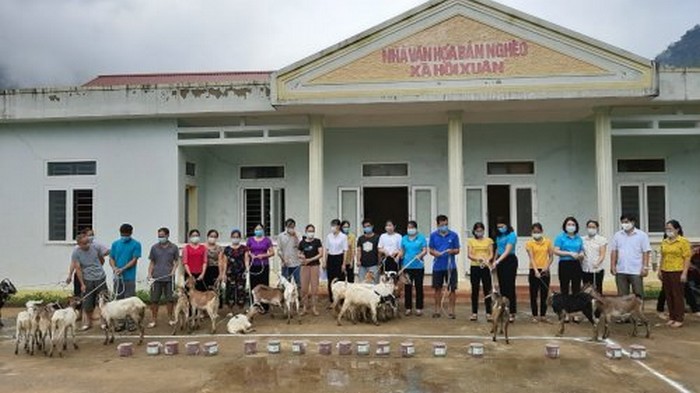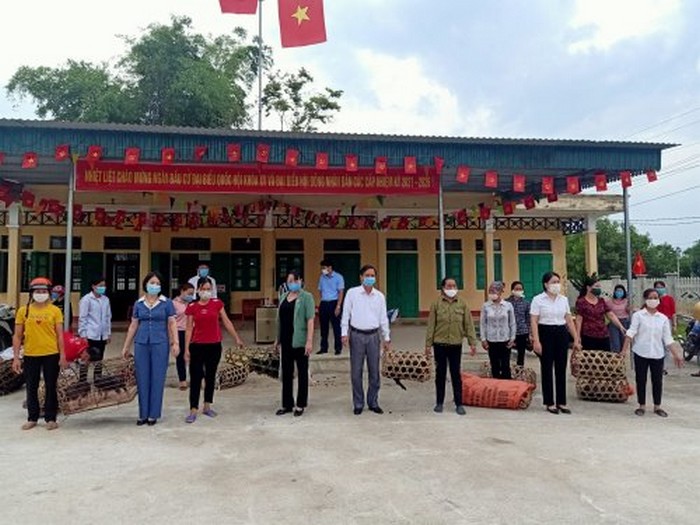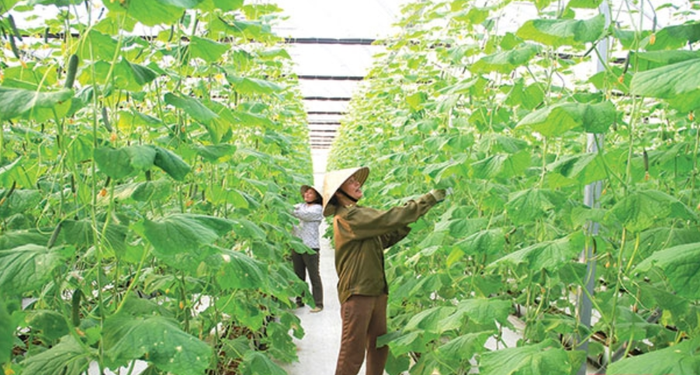Giving more than 500 million VND to cooperative model with value chain on food hygiene and safety in Thanh Hoa province
 Launching of a women-owned citrus fruit planting cooperative
Launching of a women-owned citrus fruit planting cooperative Accordingly, 6 cooperative models following the value chain on food hygiene and safety, including: 3 women-owned cooperatives on animal husbandry (raising reproductive sows in Nhu Xuan district; raising chickens in Tho Xuan district; breeding goats in Quan Hoa district) and 3 women-owned planting cooperatives (planting citrus fruit trees in Ngoc Lac district; producing safe fruits and vegetables in Ha Trung district; producing safe vegetables in Dong Son district).

Thanh Hoa Women's Union gives breeding to the goat breeding service cooperative in Ngheo ward (Quan Hoa district)
At the launching ceremony, all participating households made their own fund contribution to implement the model and ensure the conditions for the cost of fertilizers, feeds, barn, veterinary medicines and other expenses during cultivation and animal husbandry, ensuring efficient operation of the model.

Thanh Hoa Women's Union gives breeding to the women-owned breeding sow cooperative
The establishment of cooperatives is a necessity, enabling the development of the local cultivation and animal husbandry. This becomes a good opportunity for local people to promote the application of scientific and technological advances to this industry, helps reducing input costs, increasing profits, ensuring the health of producers and consumers, and enhancing sustainable production development as well.

Production and consumption model of young melon in a net house in Lam Son town (Tho Xuan District). Photo: Le Hoi
In addition, the Provincial Women's Union also organizes trainings on cultivation and animal husbandry techniques, disease prevention for plants and animals, thereby helping participants master the knowledge to take good care of and grow crops and livestock for increasing income and developing household economy. At the same time, the cooperatives also approved their cooperation contract, operation regulations and business plan, in which, safety and quality of products, operational benefits of the cooperative and members are included. Then, there are development orientations in the coming time so that the model can be highly effective and replicated throughout the commune.






